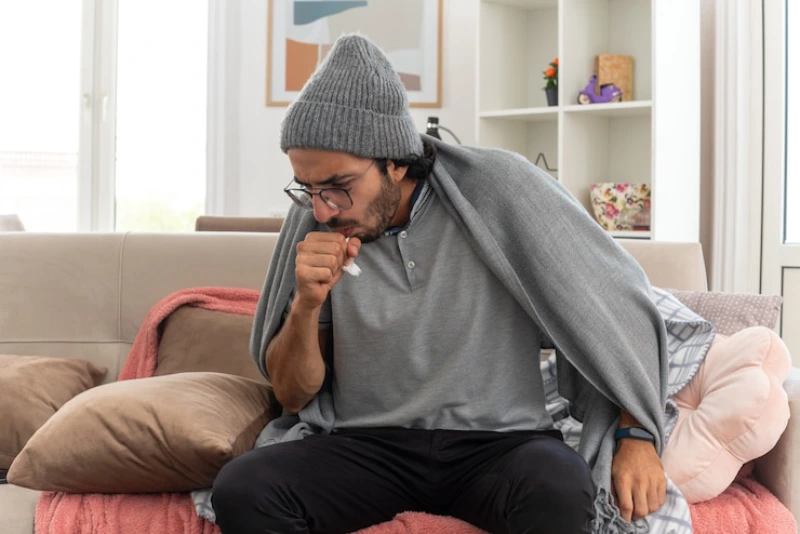Cold sores, also known as fever blisters, are a common nuisance for many. These small, fluid-filled blisters typically appear on the lips or around the mouth and are caused by the herpes simplex virus (HSV). While seemingly harmless, neglecting cold sores can pose more significant risks than meets the eye. This article dives into the hidden dangers of ignoring cold sores and why seeking proper cold sore treatment is crucial for your overall well-being.
Beyond the Blisters: Understanding the Deeper Risks
While the tingling, itching, and discomfort associated with cold sores are certainly unpleasant, the potential consequences of ignoring them go far beyond mere annoyance. Here are some key risks to consider:
1. Prolonged Healing and Increased Frequency: Leaving cold sores untreated allows the virus to replicate freely, extending the healing time, sometimes weeks. This significantly prolongs the discomfort and can potentially increase the frequency of future outbreaks. Research suggests individuals who neglect initial outbreaks experience them more often, creating a frustrating cycle of discomfort and inconvenience.
2. Increased Transmission Risk: The contagious nature of HSV-1, the virus responsible for most cold sores, is highest during an outbreak. Ignoring cold sores increases the risk of spreading the virus to others through direct contact, posing a particular threat to individuals with weakened immune systems or newborns. Pregnant women who contract HSV-1 for the first time during pregnancy can transmit the virus to their babies, potentially leading to serious complications.
3. Scarring and Pigmentation: While less common, untreated cold sores can sometimes lead to scarring or hyperpigmentation around the affected area. This can cause lasting cosmetic concerns and emotional distress, especially for individuals who experience frequent outbreaks on visible areas like the lips. Early intervention and proper treatment can significantly reduce the risk of such complications.
4. Increased Risk of Secondary Infections: Open blisters created by cold sores act as entry points for bacteria, raising the risk of secondary infections. These infections can be painful, require additional antibiotic treatment, and potentially leave scars. Prompt treatment of the primary cold sore outbreak helps prevent such secondary complications.
5. Ocular Complications: In rare cases, the HSV-1 virus responsible for cold sores can migrate to the eye, causing a potentially vision-threatening condition known as herpes keratitis. This condition can lead to corneal scarring, inflammation, and even vision loss. Early diagnosis and treatment of cold sores are crucial to prevent such complications, especially for individuals who frequently experience outbreaks near the eyes.
6. Emotional and Social Impact: The visible nature of cold sores, particularly during the initial stages, can affect self-esteem and confidence, leading to social withdrawal and anxiety. This can negatively affect personal and professional relationships, hindering quality of life. Seeking treatment can help alleviate these concerns and improve overall well-being by minimising the visibility and duration of outbreaks.
Don’t Wait, Treat: Effective Options for Cold Sore Management
Fortunately, many effective treatment options are available for managing cold sores and minimising their impact. Here are some key points to remember:
1. Early Intervention is Key: The sooner you start treatment after the onset of symptoms, the faster the healing process and the lower the risk of complications. Over-the-counter topical creams containing antiviral agents like acyclovir can shorten the duration of outbreaks by up to a day, significantly reducing discomfort and potential transmission. Starting treatment at the first tingling sensation can be particularly beneficial.
2. Prescription Options for Frequent Outbreaks: For individuals experiencing frequent or severe cold sores (more than six outbreaks per year), prescription antiviral medications taken orally or intravenously can significantly reduce outbreak frequency and severity. These medications work by inhibiting viral replication, offering long-term relief, and lowering the risk of complications.
3. Lifestyle Modifications: While not a cure, certain lifestyle modifications can help lower the frequency and severity of cold sores. These include:
- Managing Stress: Stress is a known trigger for cold sore outbreaks. Relaxation techniques like meditation, yoga, or deep breathing can help manage stress levels and possibly reduce outbreak frequency.
- Getting Adequate Sleep: Insufficient sleep weakens the immune system, making individuals more sensitive to viral infections like HSV-1. Aiming for 7-8 hours of quality sleep each night can help strengthen the immune system and potentially reduce cold sore outbreaks.
- Avoiding Sun Exposure: Ultraviolet radiation from the sun can trigger cold sore outbreaks. Wearing sunscreen with SPF 30 or higher, especially on the lips, and seeking shade during peak sun hours can help prevent outbreaks.
- Maintaining a Healthy Diet: A diet rich in fruits, vegetables, and whole grains provides essential nutrients that support the immune system and potentially help fight viral infections. Additionally, staying hydrated by drinking enough water can help keep the skin healthy and reduce the severity of cold sores.
Summing it Up:
While there is no cure for HSV-1, a proactive approach to managing cold sores can significantly improve your quality of life. By understanding the hidden dangers of ignoring them, seeking appropriate cold sore treatment, and implementing lifestyle modifications, you can minimise the impact of cold sores and ensure your overall well-being. Remember, early intervention, open communication with your healthcare provider, and a positive attitude are key to successfully managing this common condition.














